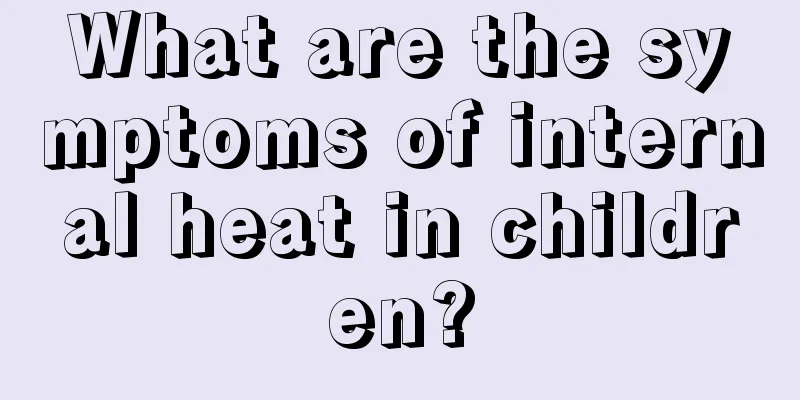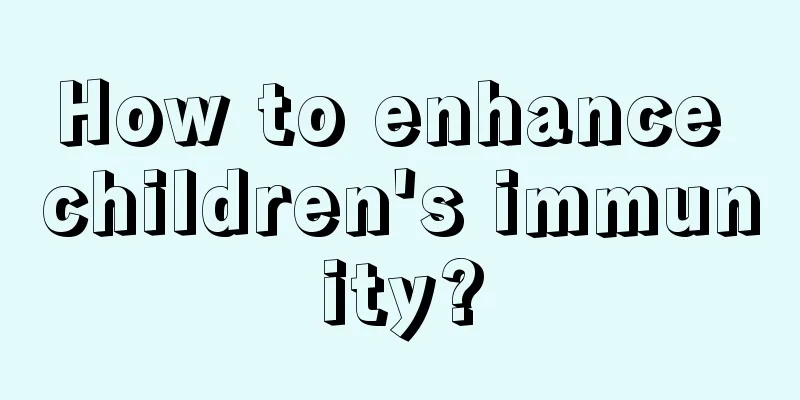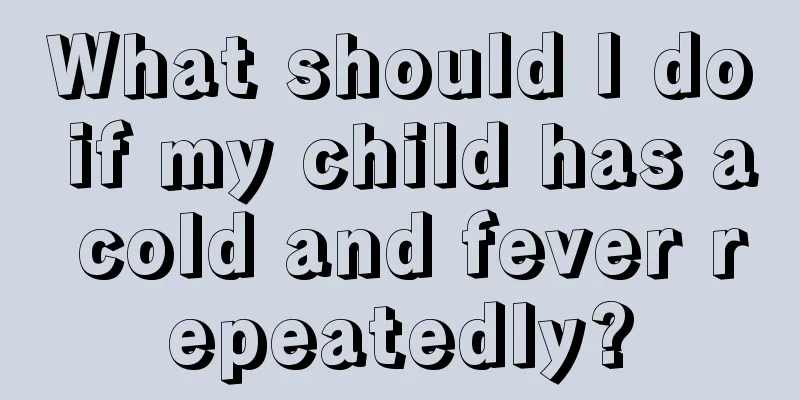What are the consequences of not getting vaccinated?

|
Generally speaking, newborns need to go to the hospital regularly for vaccinations. In order to avoid congestion during vaccinations, community hospitals often provide this service for babies. So, what consequences will it bring to babies if they don’t get vaccinated? Parents who hope to ignore vaccinations can understand the importance of prevention for babies. The dangers of not taking your child to get vaccinated on time Many parents think that vaccines are useless and some vaccines are not cheap. The older generation has gotten through this without getting vaccinated, so there must be nothing wrong with them. Vaccinations are given to prevent infectious diseases, especially those with a high incidence rate among children. A new study by Danish scholars shows that the harm of infectious diseases does not end when the body recovers. Infections in the body can affect the brain and reduce IQ. The more infections a person experiences, the greater the damage to his brain. So don’t think that vaccination is not a big deal. It should be done. Parents should remember to take their children to the hospital to complete the vaccination on time. The consequences of no vaccine: These diseases can cause a large number of deaths Poliomyelitis (polio): Polio is highly contagious and can cause complete paralysis within hours. Before the advent of polio vaccines, almost all children would be infected with the polio virus, and one in every 200 infections would result in irreversible paralysis. In cases of paralysis, 5% to 10% of patients die from respiratory muscle paralysis. Thanks to polio vaccines, polio cases have dropped by more than 99 percent since 1988. Tetanus (the "tetanus" in the DTP vaccine): Tetanus is usually a fatal infectious disease with a mortality rate between 10% and 70%; even in hospitals with the best medical conditions, the mortality rate is 10% to 20%. In the 1980s, about 800,000 newborns died of tetanus worldwide. The number dropped to 180,000 in 2002 and to 50,000 in 2008. Pertussis (the "pertussis" in the DTP vaccine): Pertussis is an important cause of infant mortality worldwide. In 2008, there were approximately 16 million cases of pertussis worldwide (95% of which occurred in developing countries), and approximately 195,000 children died from it. Following mass vaccination in the 1950s and 1960s, pertussis morbidity and mortality in developed countries fell by more than 90%. Diphtheria (the "white" in the DTP vaccine): Historically, diphtheria has been one of the most terrifying childhood diseases. During the diphtheria pandemic in Europe and the United States in the 1880s, the mortality rate in some places was as high as 50%. Before the widespread use of diphtheria toxoid in the 1980s, there were about 1 million cases and 50,000 to 60,000 deaths each year in developing countries. Between 1980 and 2000, the total number of reported cases of diphtheria worldwide decreased by more than 90%. Measles: Measles is a serious disease that is highly contagious. In the era without vaccine, more than 90% of people were infected with measles virus before the age of 10, and most of them would develop symptoms. In 1980, before widespread vaccination, measles killed an estimated 2.6 million people worldwide each year. Japanese encephalitis: Japanese encephalitis is a disease transmitted by mosquitoes. It has a high mortality rate (5% to 50%) and about one-third of survivors suffer from lifelong neuropsychiatric disorders. my country began to use Japanese encephalitis vaccine on a large scale in the 1970s, and the incidence rate has dropped from 20.92/100,000 to less than 1/100,000 today. |
<<: What should I do if I have a fever the next day after getting a vaccination?
>>: What happens if I get the thrush vaccination?
Recommend
How does acrodermatitis develop in children?
If a child suddenly develops redness and swelling...
Why does my child always want to urinate but doesn’t urinate much?
The symptoms of frequent urination are very commo...
What does it mean when the baby has obvious blue veins on his head?
If there are blue veins on the baby's head, p...
What should I do if a 13-year-old girl has hereditary big toes?
In fact, a disease like bunion is not a very scar...
What are the benefits of eating shrimp for children?
Shrimp is a type of aquatic product, especially i...
How to prevent your child from spitting up
In life, many parents will find that their babies...
Prevention and treatment of dry stool in infants
What is the reason for dry and hard stools in bab...
What should I do if my child has crossbite?
Oral care is a part of children's family heal...
Why does the baby always cry when sleeping at night?
Babies often cry when they sleep at night, and ma...
What is the cause of the big pimple on the child's body?
In the process of taking care of the baby, the ba...
What to do if your baby's eyes are red
Parents with children at home must have noticed t...
The ninth month baby development indicators
We all know that the developmental indicators of ...
What disease could it be if a child suddenly has cramps?
What worries parents the most during the growth o...
Why does the baby snore?
When taking care of your baby, you need to do it ...
The best time for pediatric cryptorchidism surgery
The problem of cryptorchidism in children is of g...









